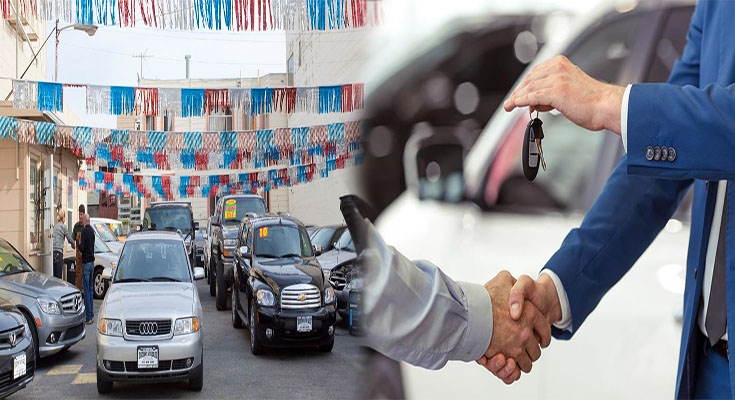Navigating the used car market and making a smart purchase can be a challenge, but it doesn’t have to be. There are a few steps you can take to find the right used car, secure affordable financing and pay a fair price.
You should research models, options, repair records and safety tests before stepping foot in a dealership or private-party seller’s showroom. It’ll save you a lot of time and money in the long run.
Research and Preparation
When it comes to buying a used car, it’s important to do your research and be prepared for the experience. This includes understanding the vehicle’s dwindling inventory, its history, and the market value of similar vehicles in your area.
This is especially true if you’re shopping for a high-mileage or low-mileage vehicle. It’s also a good idea to have a list of questions ready, including how much maintenance will be required in the near future and how long it will take for repairs to be made. You’ll also want to test drive the vehicle before making your purchase, as this can help you avoid a costly surprise down the road. You’ll also want to make sure you get a great deal on your new-to-your car.
Find the Right Car
Car buying is a process that requires a lot of research and preparation. With so many options, however, it can be difficult to find a vehicle that suits your needs and budget.
First, make a list of the features and attributes that are most important to you. This will help you compare different models and narrow your search.
Next, start test driving several vehicles until you find one that feels right. Don’t forget to ask questions and take a look at everything from the engine to the interior and backseat.
After you’ve taken a close look at the car, ask for a vehicle history report and get a mechanic to inspect it. This will help you avoid purchasing a used car with damage that could cost you thousands of dollars down the road.
Negotiate the Sale
Whether you’re buying from a dealership or a private seller, it’s important to know how to negotiate the sale. This will ensure you get a great deal on your used car.
Start your negotiation by determining the low and high price of the vehicle you’re interested in. You can find this information through a website like Kelley Blue Book (KBB).
Then, make an offer based on the lower price. This will show the dealer that you are an informed buyer who knows your boundaries and wants to get a good deal.
As you move closer to a deal, the dealer may try to add on extras, such as tire protection plans and anti-theft products. These are often unnecessary and can significantly increase the cost of the vehicle.
Financing Options
Whether you’re financing a new or used car, there are many options to choose from. You can get financing from banks, credit unions or online lenders.
Banks and credit unions offer lower rates than dealerships and can also accept less- than-perfect credit. You can often borrow a larger amount, use a co-signer or sign on for a longer loan term.
Regardless of your financing preference, it’s always helpful to get preapproved before going to the dealership. This will allow you to focus on finding a car that fits your budget instead of worrying about what the dealer will offer you.
Protect Your Investment
Before you start shopping for a used car, it’s important to do your research and understand the potential problems. A vehicle history report from a company like Carfax or Autocheck can help you identify potential red flags before you even step foot in the dealership or private seller’s lot. You may also want to bring a friend or family member who has a strong sense of smell and is familiar with cars, so that they can evaluate the interior. This person can tell you if the upholstery smells moldy or cigarette smoke, and if the car is in good overall condition. This should help you make an informed decision about whether or not to buy the car. Alternatively, you can ask to test drive the vehicle before making any decisions.

